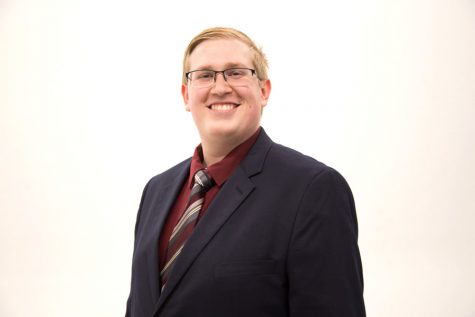
The gateway to Point Park is looking different this fall. Prospective full-time freshmen seeking to enroll for the fall 2016 semester will be greeted by a new option – a test optional academic application.
“Students have the option of choosing the regular track for admission, which includes the submission of test scores, ACT or SAT, or they can use the test optional admission, where we ask for additional material,” said Gary Bracken, vice president of enrollment management.
Bracken, whose office oversees the enrollment and recruitment of all students at the University, said that the new test optional application will evaluate prospective students based on a list of criteria, such as graded writing samples, from their high school and evidence of class rank.
“Students can also submit portfolios of accomplishments,” Bracken said. “They can provide videos of their participation with groups – it’s a wide variety of things but it’s a little bit more, what we call holistic evaluation of the student rather than just relying as we used to in this profession on the test scores.”
The requirements are categorized into academic options such as including writing samples, letters of recommendation and non-academic options including a portfolio. The student must pick from the list of options what to include, but there is one requirement of all applicants.
“They also need to submit a resume showing participation in community activities, school activities, and we look particularly there for leadership involvement, not just participation,” Bracken said.
Bracken said this approach gives admissions a more complete view of the student applying, and noted that he has worked at two other institutions that have implemented this policy and have seen positive results.
“It’s primarily been used by the more selective institutions who don’t rely solely on the test,” Bracken said. “They’re looking for what we call grit – those students who may indicate by this holistic approach that they have what it takes to persevere through four years of college far better than a test might indicate on a four hour period with a sharp number two pencil. It’s more detailed, it’s more indicative of what a student can do.”
In the way of results, Bracken projects that Point Park will see a broader applicant demographic, and cites data that standardized testing culture requires, at times, expensive test preparation that hinders the chances of otherwise qualified students.
“What I suspect will happen is we’ll see an increase in applications from students we wouldn’t normally have received applications from,” Bracken said. “And I suspect that it will increase the diversity in the applicant pool – not just ethnic diversity but economic diversity, geographic, demographic diversity as well.”
Students agree with the change in possibility, pointing to the nature of standardized testing in high schools as a major issue in the education system.
“I don’t think that standardized testing shows your true knowledge,” said freshman English major Karisa Sosnoski.
When applying to colleges, Sosnoski was not aware of test optional policy at Temple University, whose alternative to testing includes writing essay-style responses to interview questions for admission.
“I didn’t know that they had that other option,” Sosnoski said. “I ended up applying and not getting the scholarships and stuff that I ended up wanting, so I think if you have that other [test optional] option, there is more of a chance for you, especially if you don’t think that your SAT scores are high enough.”
If given the option, Sosnoski says that she would have applied to Point Park using the test optional application.
Sosnoski said, “It gives you a chance to show your creativity and other skills other than filling in a bubble on a test, which is basically just memorized.”
Freshman sports, art and entertainment management major Brennen Burke agrees and said, “I think that standardized testing like the SAT and ACT, I don’t feel that they give an accurate gauge of a student’s performance. I feel what a student does in the classroom is a better example of how they would be in a college.”
Burke also would have taken advantage of the program had it been offered previously as a cost saving method.
“It would have saved me money from taking the SAT, and I feel at the time that my portfolio and resume would have been impressive enough to get in,” Burke said.
Burke echoes Bracken’s statements with regards to the ability to reach more students through the new application.
“Everyone’s entitled to higher education so to say that someone doesn’t deserve it, I find it kind of wrong,” Burke said. “I think that everyone is entitled to higher education no matter how you get here, whether it be [through] tests or a resume and portfolio, you deserve to be here and there’s a reason why you are here.”









